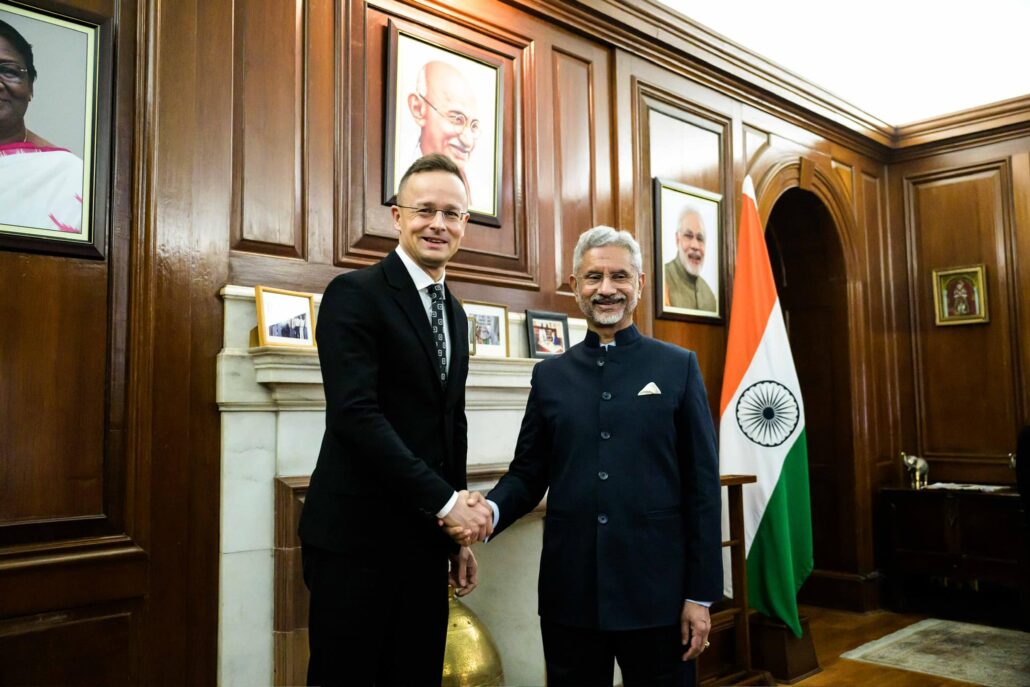FM Szijjártó: Cooperation with India in Hungary’s fundamental interest
Hungary has a fundamental interest in forging the strongest possible cooperation with India, the foreign minister said after talks with counterpart Subrahmanyam Jaishankar in New Delhi on Wednesday.
Already the world’s most populous country, India is expected to become the world’s third largest economy within years, and its weight in global politics is growing, Péter Szijjártó said on Facebook.
Therefore, the closest possible cooperation with India “is in Hungary’s fundamental interest”, he said. “That’s made all the easier as we see the urgent issues of world politics similarly,” he said, adding that India was pro-peace, opposed the politisation of international organisations and promoted ending armed conflicts through negotiation.
Bilateral trade between Hungary and India came to one billion euros last year, and large Indian corporations such as Tata Consultancy Services and car industry suppliers Motherson and Apollo have launched “enormous investments” in Hungary, he said.
The number of Indian students vying to study in Hungary hit a record in 2023, with 2,400 students applying for 200 governmnent grants, he added.
Szijjártó said establishing a direct flight between the two countries was an “important task” and would smooth economic cooperation.
During its EU presidency in the second half of the year, Szijjártó pledged that Hungary would “restart talks on free trade between the EU and India, and start coordination on investment protection and on protecting designation of origin.”
“During the six months of our presidency, we will also convene a meeting of the EU-India Trade and Technology Council,” he said.
At talks with Hardeep Singh Puri, the minister for petroleum and natural gas, the ministers agreed that issues of energy cooperation “must not be regarded as political or ideological issues as they are a matter of physical reality.”
Szijjártó said the “failed and harmful” EU sanctions against Russia posed serious challenges to energy supply and security. He said Russian energy resources now made their way to Europe through third countries, “at higher prices than before”. “So everyone except Europe benefits from the sanctions, which is also showing up in our falling competitiveness.”
Hungary and India had similarly “realistic” views on energy, he said. “We see supply security and reasonable prices as equally important, and so neither countries have given up energy cooperation with Russia… The loudest critics [of Russia] on the world stage are also buying Russian energy resources in secret or in work-around ways,” he said.
Read also:
please make a donation here
Hot news
What happened today in Hungary – 26 July, 2024
Drama: number of births in a 20-year low in Hungary
Yay or nay? – 6 odd Hungarian delicacies that make our skin crawl
Budapest tourism “exploded” this past weekend
Container transport in Budapest may stop: How will this affect Hungarian economy?
Minister: Hungary will protect its territory by every means possible




